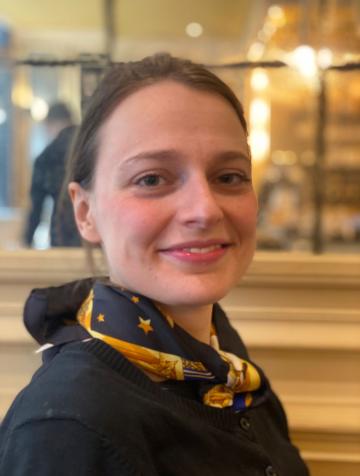I am a transnational historian of European political economy and international order from the emergence of industrial capitalism through to our contemporary era. My work gravitates around the core question of how international corporate power emerged as a major rival and challenger to sovereign state power. How have different European societies, as well as various institutional actors—from international trade unionists and consumer cooperatives to powerful industry groups, intellectuals, government technocrats, international organizations, and anti-colonial nationalists—contested the rise of international corporate power? And what alternatives did they proffer to the rising specter of monopoly power, from the grassroots democratization of corporate governance through worker-owned cooperatives, to state nationalization of major industries or resources, through to the highly technocratic enterprise of international competition law? Blending new international, legal, intellectual, and political histories with older questions of business and economic history, my research seeks to shed new light on classic questions of political economy, including the nature of and relationship between state and corporate power.
My first manuscript, tentatively titled Monopoly Menace: The Rise and Fall of Cartel Capitalism in the Twentieth Century offers a particular angle on this question by investigating how international cartels—or private monopolistic business agreements—used to function as a sanctioned tool of global economic governance before 1945. International cartels, alongside states and even empires, ruled the global economy between the two world wars by literally setting the terms for nearly half of world trade. Yet suddenly after 1945, governments across Western Europe, Japan and Latin America began adopting new laws prohibiting cartelization. Monopoly Menace unearths the causes and consequences of this anti-cartel revolution that transformed the legal and ideological regime governing contemporary global capitalism.
A second book project will investigate the long history of economic democracy. Another side-project interrogates the historical relationship between cartelization, tariffs, and deglobalization.
My research has been supported by numerous awards and institutions, including the Social Sciences Research Council, the Chateaubriand Fellowship, the DAAD (German Academic Exchange Service), the Fondation Jean Monnet pour l’Europe, the Centre for History and Economics Paris, the Business History Conference and Princeton University.
Before starting at Penn, I was a postdoctoral research fellow at the Centre for History and Economics Paris, in collaboration with the Joint Centers for History and Economics at Harvard and Cambridge Universities.
I look forward to teaching courses at Penn to a broad set of students on the global history of the corporation and the state, modern Europe, international relations, empire, democratization, and the history of capitalism.
In my spare time, I enjoy cooking freestyle without following any recipes, listening to podcasts and audiobooks, cycling, playing community basketball, singing, and scheming how best to adopt a kitten.
Ph.D. Princeton University (2024)
M.A. Princeton University (2020)
B.A. (Hons) University of British Colombia (2017)
HIST 2713 - The Corporation: A Global History from the East India Company to Amazon
Articles
“Monopoly Menace: The Rise & Fall of ‘Cartel Capitalism’ in Western Europe, 1918-1957.” Enterprise & Society: The International Journal of Business History 25, no. 4 (2024), 992-1014. https://doi.org/10.1017/eso.2024.38.
“The World in Blocs: Leo Amery, the British Empire & Anti-Internationalist Regionalism, 1903-1947,” Journal of Global History 18, no. 2 (2023), 236-58, https://doi.org/10.1017/S1740022822000262.
Book Reviews
With Friedrich Asschenfeldt, “Martin, Jamie: The Meddlers. Sovereignty, Empire, and the Birth of Global Economic Governance. Cambridge : Harvard University Press, 2022, H-Soz-Kult, (29 November 2022), www.hsozkult.de/publicationreview/id/reb-128815.
“Entre l’état et l’économie. Entre le public et le privé. Book Review. Philipp Müller et HervéJoly (dir.), Les espaces d’interaction des élites françaises et allemandes 1920-1950 (Rennes : PUR, 2021), 208 pp.," Histoire @Politique : Revue du Centre d’histoire de Sciences Po (5 July 2022), https://doi.org/10.4000/histoirepolitique.6120.
“The Paradoxes of Liberal Peacekeeping. Forum on Nicholas Mulder, The Economic Weapon:
The Rise of Sanctions as a Tool of Modern War (New Haven: Yale University Press, 2022),” Tocqueville 21 (1 March 2022), https://tocqueville21.com/books/the-paradoxes-of-liberal-peacekeeping/.
Public Writing
“This is What a Coronavirus War Economy Would Actually Look Like,” Foreign Policy (12 May 2020), https://foreignpolicy.com/2020/05/12/coronavirus-war-economy-trump-defense-production/
With Bianca Centrone, “Austerity is Not an Option,” The Daily Princetonian (16 May 2020), https://www.dailyprincetonian.com/article/2020/05/austerity-is-not-an-option

